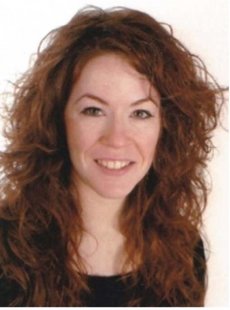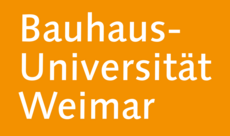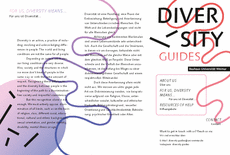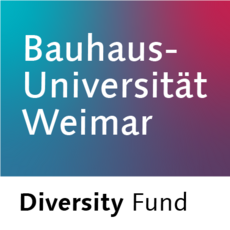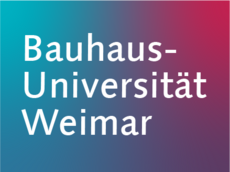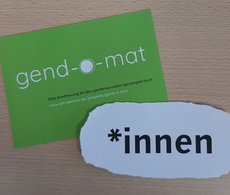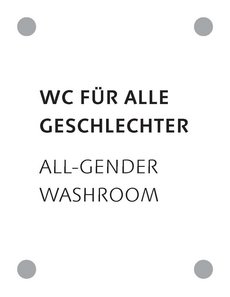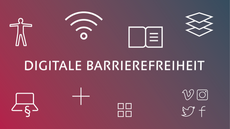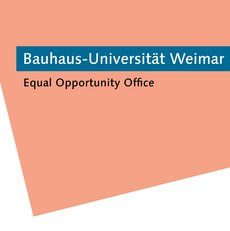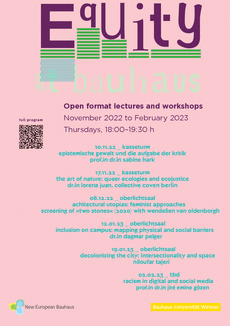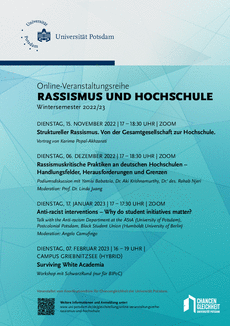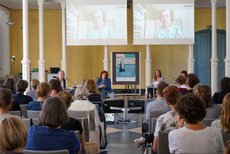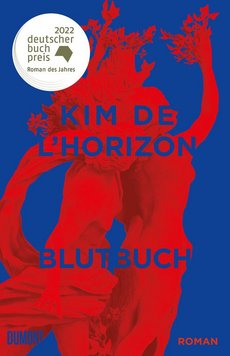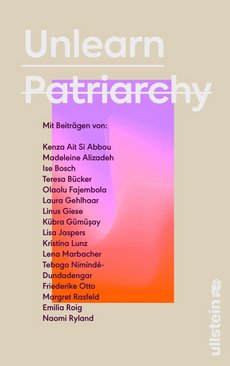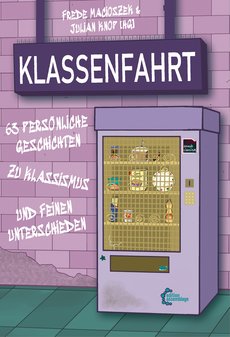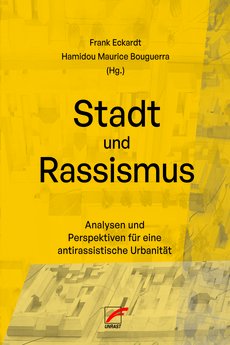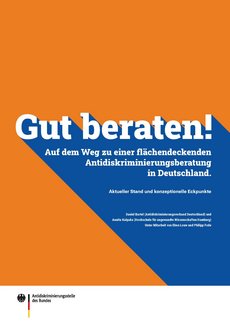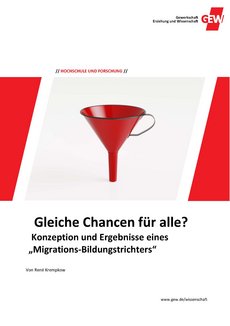
Für die deutschsprachige Version des Newsletters, bitte hier klicken.
Dear readers:
The ongoing coronavirus pandemic, energy crisis and deteriorating global political situation are cause for great uncertainty. We hope that you and all other members of the university make it through the coming months in good physical and mental health. We have been especially concerned in the last two months by the violence and totalitarian regime in Iran, the horrors of which impact women in particular. We emphatically support the statements made in this connection by our university as well as the Bundeskonferenz der Frauen- und Gleichstellungsbeauftragten (bukof; federal conference of women’s affairs and equal opportunity officers).
We are alarmed by the growing momentum of Monday evening protests in Weimar and other cities in Thuringia. With their right-wing and anti-constitutional views, they pose an increasing threat to diversity and democracy, which we as a university must also oppose.
We would also like to draw your attention to an online petition to preserve the Professorship of Gender History at the Friedrich Schiller University Jena. This professorship is the only one in all of Thuringia with a gender research focus.
In this newsletter, we would once again like to warmly invite you to a workshop within the scope of the diversity audit »Vielfalt gestalten« (»Shaping Diversity«). The workshop will take place on 10 November 2022, from 9 am to 1 pm, in the Oberlichtsaal in the Main Building. Over coffee and tea, this will be our first in-person meeting. Accordingly, there will be a particular focus on direct exchange. Within the scope of a World Café, we would like to reflect on what has been achieved so far and discuss what is still to be tackled before the end of the audit in spring 2023. The workshop will be moderated by Stephanie Gauger (mithala) and Maria Claudia Borrero Chaux.
As a result of the audit, we will be offering a Diversity Fund for the first time. The fund will be used to support projects, actions and measures by students, doctoral candidates and staff that deal with issues of diversity, equal opportunity and anti-discrimination and thus actively participate in shaping a diversity-friendly society and university, critical of all forms of discrimination.
Also ensuing from the audit process are our five Diversity Guides, who introduce themselves in this newsletter. In the spirit of peer-to-peer counselling, they are available to help other students in case of questions and, in the event of discrimination, they can also be contacted by e-mail.
We hope you enjoy reading this newsletter!
Best regards,
Tina Meinhardt
Equal Opportunity Officer of the Bauhaus-Universität Weimar
Dr. Miriam Benteler
Diversity Officer of the Bauhaus-Universität Weimar
Equal Opportunity Advisor
Dr. Michael Wallner
Equal Opportunity and Diversity Advisor
Franziska Fritsch
Equal Opportunity Office Administration
INTRODUCTION
Dr. Isabel Vila Cabanes studied English philology at the University of Valencia (Spain) and the University of Ghent (Belgium) and received her doctorate in literary studies from the Friedrich-Schiller-Universität Jena. She has been working in the Pro-TELC project at the ISM (Faculty of Civil Engineering) since February 2022 and for the Equal Opportunity Office as a project staff member in the AG »Equity@Bauhaus,« a working group established in connection with the »New European Bauhaus,« since July 2022.
As part of the »Equity@Bauhaus« working group, Dr. Isabel Vila Cabanes is organising a lecture series together with Prof. Mona Mahall (Faculty of Architecture and Urbanism) entitled »Equity at Bauhaus« (more information about the working group and the lecture series can be found under »Announcements«).
Within the scope of the 2022 committee elections, new members of the Equal Opportunity Advisory Board were elected to represent the faculties, university administration and services as well as the student body. Duties of the Advisory Board include the discussion of current equality-relevant issues at the university, strategic consultation with Equal Opportunity Officers and the allocation of funding from the Equal Opportunity Office. Decentralised Equal Opportunity Officers are also to be involved in the staffing procedures of the faculties and of university administration and services.
The following members have been in office as decentralised Equal Opportunity Officers in the faculties and in university administration and services since 1 October 2022:
Faculty of Architecture and Urbanism: Dr. Katrin Linne (deputies: Christine Dörner; Johanna Günzel)
Faculty of Civil Engineering: Natalie von Butler (deputies: Gabi Seifert; Melanie Heinemann)
Faculty of Art and Design: Lea Maria Wittich (deputy: Elisa Rufenach-Ruthenberg)
Faculty of Media: Dr. Franziska Klemstein (deputies: Jun.-Prof. Dr. Sabine Wirth; Maike Suhr)
University Administration and Services: Silvia Riedel (deputies: Dana Horch; Doreen Klamt; Kristina Hellmann)
We are a group of students who deal with issues of diversity and discrimination at the Bauhaus-Universität Weimar. We belong to the Diversity Department and work within university structures to support and promote diversity, equality and inclusion at the university. If students experience discrimination — on or off campus — we, the Diversity Guides, can be their first point of contact and provide support in dealing with the situation.
What is diversity for us?
For us, diversity is an action, a practice of inclusion, participation and recognition of differences between people. The world and conditions of living are not the same for all people. Depending on certain characteristics, our living conditions are very different. Moreover, society and the structures in which we operate do not treat all people in the same manner or with the same level of respect. Recognising these differences and the diversity of people is the beginning of the journey towards a discrimination-free society and respectful coexistence. However, this recognition is not enough on its own. We must actively oppose discrimination of any kind — be it on the basis of religion, class, differing social, educational, cultural and ethnic backgrounds, sexual orientation and gender identity, disability, mental illness or age.
The university, like any institution, is not completely free from discriminatory practices and behaviours. As Diversity Guides, we focus on the wishes and needs of those affected. Get in touch if you have experienced discrimination at the hand of other students, university staff or lecturers or if you are affected by structural discrimination at the university. Together we can find individual solutions — be it on an institutional or personal level — and appropriate help.
Everyone should feel they have a place at our university!
(Self-introduction of the Diversity Guides)
CURRENT ISSUES
With the »Diversity Fund«, the Diversity Department supports projects, measures and actions that deal with topics of diversity, equal opportunity and anti-discrimination.
Students, doctoral candidates and staff of the Bauhaus-Universität Weimar as well as student initiatives are eligible to apply. Projects of individuals and groups can be funded. The funding amount of max. €500 per project may be used for material and personnel costs.
Application deadline is 21 November 2022.
The call for applications, the application form and further information on the »Diversity Fund« can be found here.
If you have any questions, please contact the Diversity Department.
The new website »Equal Opportunity and Anti-Discrimination at Bauhaus-Universität Weimar« functions as a joint presence for the topics of equal opportunity, diversity and inclusion. Anchored centrally on the university's website under the menu item Profile, it links to the pages of the Equal Opportunity Office, the Diversity Department and, under the menu item Inclusion, to the websites of the Representative for the Needs of Students with Chronic Illnesses and Disabilities and the Representative for Individuals with Disabilities. The website makes it easier for members of the university who are affected by discrimination and disadvantage to find advice and support services within the university, the city of Weimar and the state of Thuringia.
Broken down by target groups, the overview page presents the services and specific consulting focuses of the Equal Opportunity Office, the Diversity Department, the Studierendenwerk, the Representative for the Needs of Students with Chronic Illnesses and Disabilities, the Representative for Individuals with Disabilities, and the Staff Council. The different peer counselling services for students are also linked here. For further guidance, the website offers an explanatory video on the topic »What to do in the event of discrimination and disadvantage?«. In addition, a digital complaint box offers members of the university the opportunity to anonymously report experienced or observed discrimination to the Equal Opportunity Office or the Diversity Department. Suggestions and/or criticism can also be communicated anonymously here.
During the orientation week for new students in October, the Diversity Office, Equal Opportunity Office and Representatives for Inclusion and Accessibility also published informational flyers concerning their counselling services. These were distributed to all new students together with welcome packages. The flyers can also be requested directly from the Equal Opportunity Office or the Diversity Department.
At its meeting on 5 October 2022, the Senate of the Bauhaus-Universität Weimar adopted a new guideline concerning the use of gender-sensitive language with a large majority. The guideline regulates the uniform use of gender-neutral wording or gendered wording using the gender star (asterisk) in central areas of the university. This extends, for example, not only to normative texts such as study and examination regulations but also to job advertisements and websites. As described in the guideline preamble, the Senate thereby emphasises that the university attaches great importance to a study and work environment that is free of discrimination and fit for the future. By using gender-sensitive language, the university is endeavouring to ensure that all people are included and addressed equally, irrespective of their gender or gender identity. An implementation period of five years has been agreed for the adaptation of texts. The Equal Opportunity Office supports this process through training, individual text corrections and an online glossary of common terms in the university context.
In addition to washrooms for men and for women, so-called »all-gender washrooms« are to be installed at the Bauhaus-Universität Weimar, which can be used by people of all genders. This decision was taken by the Presidium at the suggestion of the Diversity Department.
The dichotomous division into »men’s« and »women’s« washrooms does not take into consideration non-binary persons —i.e., persons who are neither (exclusively) men nor (exclusively) women. Moreover, persons who do not conform to the social constructs of »male« or »female« appearance often experience hostility — or even violence — when using sanitary facilities. This primarily affects trans/inter/non-binary (TIN*) persons. For fear of discrimination and violence, many affected persons avoid public washrooms or reduce their intake of fluids, which can be damaging to their health.
As a result of the decision taken by the Presidium, all-gender washrooms will now be included in all renovation and new construction projects. In existing university buildings, some washrooms will gradually be designated as »All-Gender Washrooms« by way of new signage, so that — eventually — washrooms for all genders will be available in all buildings of the university. Priority will be given to buildings used by many university members.
As a first step, the Faculty of Media will designate a washroom as an »All-Gender Washroom« in its alternative premises at Schwanseestraße 143. We will successively inform about further locations on our website.
A large number of videos and PDF files are now available in accessible formats on the Bauhaus-Universität Weimar website.
Twenty hours of video material subtitled and over 150 communications (MdUs) from the Bauhaus-Universität Weimar converted into barrier-free, accessible documents: these are the impressive results of some six months’ effort from the digital accessibility working group within the scope of the »Inclusive Universities Thuringia« project. Under the leadership of Christiane Hempel from University Communications, three student assistants are currently in the process of making the Bauhaus-Universität Weimar website more accessible in accordance with the guideline »on the accessibility of websites and mobile applications of public bodies«. Find out more about the digital accessibility working group and the work it does here.
Would you also like to design barrier-free and accessible videos and PDFs? Visit the Bauhaus-Universität Weimar website on digital accessibility. There you will find descriptions and tutorials on how to create accessible documents and videos, accessible social media channels as well as further suggestions and tips on the topic (in German).
In August, an English translation of the »Equal Opportunity Plan of the Bauhaus-Universität Weimar 2021-2027« was released.
The topic of equal opportunity is becoming increasingly important in the awarding of third-party funding. Many third-party funding bodies now request that applicants provide a German or English version of the respective research institution’s equal opportunity plan when applying for research funding.
Both the German-language Equal Opportunity Plan and the English translation can be found on the website of the Equal Opportunity Office.
The German Research Foundation (DFG) intends to further promote equality and diversity in academia on multiple levels. For example, the aspect of diversity will be included in the so-called Research-Oriented Equity Standards and the name will be expanded accordingly. In future, these will be called »Research-Oriented Equity and Diversity Standards«. In addition to gender and gender identity, the »Research-Oriented Equity and Diversity Standards« are now also to include ethnic origin, religion and belief, disability or chronic/long-term illness as well as social origin, sexual orientation and more. The coming together of various dimensions of difference in one person (intersectionality) is also to be afforded appropriate consideration. Accordingly, in addition to the topic of equality, diversity is also to play a more significant role in the DFG's funding activities.
DFG members furthermore adopted the »Zusammenfassung und Empfehlungen 2022« (summary and recommendations 2022) on the focal topics selected for the previous reporting cycle (2020-2022), »Increasing the proportion of women in the postdoctoral phase« and »How universities deal with the issue of diversity«.
The Diversity Department and the Equal Opportunity Office will be happy to advise you on gender equality and diversity aspects of your research proposal to the DFG.
TIP: DFG online info event: »Relevanz von Geschlecht und Vielfältigkeit im Forschungsinhalt« (Thursday, January 26, 2023, 1:00 - 2:00 p.m., target group: researchers from all disciplines).
ANNOUNCEMENTS
The »Equity@Bauhaus« working group was established within the scope of the EU proposal project for the New European Bauhaus. The working group advocates that fairness and equality of opportunity — equity — assume an integral role throughout the discussion about shaping the future in the face of the global challenges of climate change. For this purpose, a lecture series entitled »Equity at Bauhaus« has been conceptualised in cooperation with Prof. Mona Mahall (Faculty of Architecture and Urbanism).
The open format »Equity at Bauhaus« refers to the intersections between the environmental debate and feminism, queer theory, race-critical theories, inclusion, equality of opportunity and diversity in relation to the departments of the Bauhaus-Universität Weimar. These topics will be addressed from a decolonial and intersectional perspective in a series of lectures and workshops with a diverse range of speakers. The aim is to create a sustained dialogue about careful, just and pluralised coexistence in the world and in the university, about dominance and democracy, about dynamics of gender, ethnicity, inclusion and diversity. The aim is to create an open forum in which all members of the university can exchange critical approaches and draw on discourses, theories and practices concerning gender, race and ethnicity to generate new momentum in the sustainability debate.
The programme for the »Equity at Bauhaus« lecture series is available for download here.
Who actually invented coding? And when? How many female pioneers in science and technology do I actually know? What did they research and develop?
... On November 18, 2022, you can ask yourself all these questions over a drink of your choice, with friendly people and in a relaxed atmosphere at a pub quiz. Teams will compete, puzzle, draw jokers, and of course there will be something to win.
The event is part of the program of the »Long Night of Sciences« in Weimar. It is organized and carried out by Vertr.-Prof. Heike Tauscher, Martina Mellenthin Filardo and Judith Krischler and funded by the Equal Opportunity Office.
The event will start at 6 p.m. at Reservebank — teams will be registered on site.
To make the quiz a relaxed and safe event for all, please consider getting tested for Covid prior to the event.
As a phenomenon affecting society as a whole, racism is also structurally anchored in the university context and manifests itself there on various levels. A lack of representation and participation of non-white university members, Eurocentric scientific perspectives, everyday racism in courses and in administration and a lack of support for those affected are some examples. Universities must take responsibility and position themselves in the current discourse on racism. Nevertheless, the examination of the institutional and historically grown involvement of universities in the oppressive social relationships of racism is only just beginning in Germany and often meets with resistance.
The event series »Rassismus und Hochschule« (»Racism and University«) at Universität Potsdam examines the university in its various functions and focuses on current race-critical approaches and strategies for dealing with racism.
The first three events (Nov. 15: »Struktureller Rassismus. Von der Gesamtgesellschaft zur Hochschule«; Dec. 6: »Rassismuskritische Praktiken an deutschen Hochschulen — Handlungsfelder, Herausforderungen und Grenzen«; Jan. 17: »Anti-racist interventions — Why do student initiatives matter?«) will take place online and are open to all interested parties.
Here you can download the program flyer for the online event series »Rassismus und Hochschule.«
Further information, e.g. on registration, can be found here (in German language).
DOCUMENTATION
In September, staff of the Equal Opportunity Office participated in two important professional events. This commenced at the beginning of September with the »5-Länder-Konferenz der Gleichstellungsbeauftragten an ostdeutschen Hochschulen« (5-state conference of equal opportunity officers at Eastern German universities) in Greifswald, Mecklenburg-Western Pomerania. Together with equal opportunity stakeholders from Brandenburg, Mecklenburg-Western Pomerania, Saxony, Saxony-Anhalt and Thuringia, the Equal Opportunity Office of the Bauhaus-Universität Weimar dealt with topics such as the proactive recruitment of women in the context of appointment procedures, the relationship between equal opportunity and diversity and advice on sexual discrimination and violence. Then, at the end of September, the Bundeskonferenz der Frauen- und Gleichstellungsbeauftragten an Hochschulen (bukof; federal conference of women’s affairs and equal opportunity officers at universities) took place in Bad Hersfeld. The three-day conference was held under the motto »Geschlechtergerechtigkeit verbündet — Allyship und Verbündetenschaft in intersektionaler Gleichstellungsarbeit« (»Gender justice united — allyship and unity in intersectional work to promote equality«). The conference opened with a keynote address by Dr. Emilia Roig on the topic »Auf dem Weg zu einer Welt frei von systemischer Unterdrückung« (»The path towards a world free of systemic oppression«).
LITERATURE TIPS (PRINT)
»The narrator of Blutbuch does not identify as either male or female. Raised in a shabby Swiss suburb, they have escaped the narrow structures of their origins and now live contentedly in their non-binary body and own sexuality in Zurich. But then their grandmother develops dementia and the ›I‹ begins to grapple with the past: Why are there only fragmentary memories of their own childhood? Why is their grandmother hardly able to distinguish them from their sister, who died at an early age? And what happened to the great-aunt who disappeared as a young woman? The narrator, in defiance of their mothers’ culture of silence, begins to research the female bloodline that has not been handed down.
This novel is a stylistically and formally unique act of liberation from the things we carry forward unasked: gender, trauma and class. Kim de l'Horizon sets out to explore other forms of knowledge and tradition, of storytelling and becoming oneself, thereby undermining linear forms of family narrative and approaching a fluid and flowing style of writing that doesn’t pin down but instead opens up.« (Translation of publisher’s announcement text)
»Blutbuch« was awarded the German Book Prize 2022 and the Literature Prize of the Jürgen Ponto Foundation. The novel was also nominated for the Swiss Book Prize 2022.
Click here for the publisher’s webpage on Kim de l'Horizon’s novel »Blutbuch«.
»Even though we’re now living in the 21st century, the Patriarchy still rules.
Why the hell is that? And what can we personally do to recognise and dissolve the oftentimes subconscious toxic structures? This anthology of well-known authors offers help. Defending oneself against the Patriarchy is especially difficult in everyday life. Many things are so familiar to us that we don't even question them. Even self-described feminists fall into the same traps time and time again. We exclude women through language and follow outdated ideas of a happy nuclear family complete with traditional gender roles. Or we adapt to male-dominated and capitalist structures if we want to be successful in our careers. Contributors to the anthology Unlearn Patriarchy report on their experiences and trace their own fatal thought patterns. They show how patriarchal patterns of action can be broken across all areas of society, from language and love through to work, politics, education or identity, and how a better life for everybody becomes possible.« (Translation of publisher’s announcement text)
Click here to access the publisher’s webpage on the book »Unlearn Patriarchy«.
»In Klassenfahrt, classism is related in an accessible, open and approachable way, pleasantly distinguishing the anthology from theoretical books on the topic. Personal and day-to-day situations demonstrate classism and how differences forcibly shape us.
Through stories, comics and interviews, 50 people share their experiences with classism. In varying formats, topics include health, money, shame, sexuality and access. We discover what soft drinks, cheese slices, snack machines, Star Trek and a plate have to do with classism. The storytellers discuss grief, anger and strength and address contradictions.
Through the sharing of different experiences, it becomes clear that we continue to live in a society where class and class origin structurally regulate participation. The anthology is an invitation to discuss these issues. A collection to reflect, sensitise, laugh and satisfy curiosity. — With contributions from 50 authors.« (Translation of publisher’s announcement text)
Click here for the publisher’s webpage on the book »Klassenfahrt: 63 persönliche Geschichten zu Klassismus und feinen Unterschieden«.
»The year 2020 will go down in history as the beginning of the global COVID-19 pandemic. Will this also be the case with regard to the racist violence that took place simultaneously in the USA, the Federal Republic of Germany and many other countries?
In spring and summer of 2020, protests in connection with the Black Lives Matter movement — first in the US and, soon after, globally — took on a dimension not seen since the days of the African American civil rights movement. In Germany, right-wing terrorism claimed nine lives — each with a migration background — in Hanau in February 2020.
This book aims to both characterise and analyse the connections between the structures of the city and those of racism. In what ways does racism have an impact on everyday urban life, on education, on public spaces, on the search for housing or vis-à-vis institutions such as the police? In what ways can it be countered? In the end, the city is not only the site of racist incidents, but also the space for the anti-racist struggle.« (Translation of publisher’s announcement text)
The publisher’s webpage on the book »Stadt und Rassismus« can be found here.
ONLINE RESOURCES
Throughout Germany, there is a prevailing lack of counselling service centres for those who experience discrimination. This is revealed in the new study Gut beraten! Auf dem Weg zu einer flächendeckenden Antidiskriminierungsberatung in Deutschland (»Well advised! Working towards comprehensive anti-discrimination counselling in Germany«) commissioned by the Federal Anti-Discrimination Agency. »Most counselling services are provided by small, non-governmental agencies, which are often underfunded and work without a long-term perspective,« explained Independent Federal Commissioner for Anti-Discrimination Ferda Ataman in a press release when the study was published.
According to the study, there are fewer than 100 full-time anti-discrimination counselling positions throughout Germany — in other terms, an average of just one counsellor for more than 920,000 inhabitants. According to the authors, however, there is a need for one full-time counsellor per 200,000 inhabitants. This corresponds to at least 400 full-time positions throughout Germany. Furthermore, the study indicates that three out of four counselling service centres describe their funding as insufficient. Just one in every ten centres has the means to plan more than two years ahead.
The Gut beraten! study is the first to present a detailed concept of exactly what is required for qualified anti-discrimination counselling in Germany.
Click here to download the (German-language) publication.
In September 2022, the Gewerkschaft Erziehung und Wissenschaft (GEW; German trade union for education and science) presented a study on equality of opportunity for people with a migration background in the German education system. In the study, author René Krempkow developed the notion of a »migration-education funnel«, modelled on the »education funnel« known from social surveys of the Deutsches Studentenwerk (German student services). This »migration-education funnel« vividly illustrates the unequal opportunities for people with and without migration backgrounds in transitions in the education system from primary school to doctoral studies.
»People with a migration background in Germany have significantly poorer chances of taking up university studies, completing these successfully and embarking on an academic career than those without a migration background. It is imperative that universities provide better support for people with a migration background, reduce disadvantages and establish an effective complaints structure,« said GEW deputy chair and higher education expert Andreas Keller in a GEW press release when the study was published.
The full GEW press release and the study »Gleiche Chancen für alle? Konzeption und Ergebnisse eines ›Migrations-Bildungstrichters‹« (»Equal opportunities for all? Conception and results of a ›migration-education funnel‹«) are available for download here.
In September 2022, the Special Issue »Critical Library Perspectives« of the Zeitschrift für Bibliothekskultur (»Journal for Library Culture«) was published. Among other subjects, the articles therein deal with criticism of racialising and discriminating titles and metadata, with gender-sensitive language in contact with library users or with grey literature and »gender in STEM« as examples of inclusivity in the knowledge landscape. The Special Issue also includes a copy of Karin Aleksander’s application to the DNB for the inclusion of the subject term »gender« in the Integrated Authority File (GND) of the German National Library (DNB).
The Special Issue »Critical Library Perspectives« of the Zeitschrift für Bibliothekskultur can be found here.
